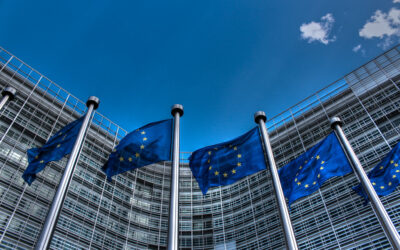
Today’s article aims to give an update on what the European Union has been working on this summer regarding infrastructure sustainability. The main topic of today focuses on investments of the European Union.
EU Invests €7 Billion in Sustainable, Safe, and Smart Transport Infrastructure
In a landmark move, the European Union is allocating over €7 billion to 134 projects aimed at advancing the goals of the European Green Deal and the Sustainable and Smart Mobility Strategy. This significant investment, made under the 2023 Connecting Europe Facility (CEF) call for proposals, will help build a sustainable, smart, and resilient transport infrastructure network across Europe. CEF is the EU’s funding program dedicated to supporting European transport infrastructure development.
These newly selected projects will focus on building or upgrading transport infrastructure, including railways, inland waterways, roads, and short-sea shipping routes. Additional initiatives will enhance connectivity to ports, airports, and multimodal terminals. The EU will also support projects in Ukraine and Moldova to develop the EU Solidarity Lanes and implement smart traffic management systems for inland waterways, air, and road transport.
The Commissioner for Climate Action and Transport remarked that this is the largest call under the current CEF Transport program. The chosen projects will revolutionize Europe’s transport network by making cleaner modes of transport more efficient and appealing for both passengers and freight, while also enhancing safety across the Trans-European Transport Network (TEN-T). Nonetheless, the Director of the European Climate, Infrastructure, and Environment Executive Agency (CINEA), echoed these sentiments, stating that Connecting Europe Facility is a success story, consistently delivering on its promise to provide fast, safe, interconnected, and sustainable transport infrastructure for EU citizens and businesses.
The funding will support major cross-border rail connections within the TEN-T core network, such as Rail Baltica, the Lyon-Turin line linking France and Italy, and the Fehmarnbelt tunnel connecting Denmark and Germany. Additionally, cross-border points between Ukraine, Moldova, and EU countries like Romania, Hungary, and Poland will be enhanced to facilitate smoother traffic flows for Ukrainian imports and exports. The European Rail Traffic Management System (ERTMS) will also be widely deployed across the EU, improving both interoperability and rail transport safety.
Around 20 maritime ports in Ireland, Spain, Finland, the Netherlands, Germany, Malta, Lithuania, Cyprus, Croatia, Greece, and Poland will be upgraded to supply shore-side electricity to vessels and to support the transport of offshore renewable energy. Inland waterway infrastructure will see cross-border connections developed between France and Belgium in the Seine-Scheldt basin and between Romania and Bulgaria on the Danube. Inland ports in Austria, Germany, and the Netherlands will also receive support to promote a modal shift towards Europe’s network of rivers and canals.
For road transport, the deployment of cooperative Intelligent Transport Systems and Services (ITS) and the construction of new safe and secure parking areas will enhance safety and improve travel across Europe’s Road network for both private citizens and professionals. Air traffic management projects will continue to advance the Single European Sky initiative, making air transport more efficient, safer, and environmentally friendly.
Background
A total of 408 applications were submitted under the CEF Transport call for proposals, which closed on 30 January 2024. Following evaluation, 134 proposals were selected for funding, amounting to approximately €7.1 billion out of the €22.2 billion requested. Under the CEF Transport program for 2021-2027, €25.8 billion is available for grants to co-fund TEN-T projects in EU Member States. Since 2014, CEF has supported over 1,500 transport sector projects, with a total investment of €37.5 billion (excluding the current selection). The EU’s contribution will be in the form of grants to co-finance the total project costs.
Next Steps
Following approval by EU Member States, the European Commission will officially adopt the financing decision, and CINEA will begin preparing the grant agreements. The results are provisional until the European Commission adopts the corresponding award decision. Further financing opportunities are available under the CEF Transport program through the Alternative Fuels Infrastructure Facility call, with the next proposal deadline on 24 September 2024. Additionally, the 2024 CEF Transport calls for proposals are set to be launched towards the end of September.
References
European Climate, Infrastructure and Environment Executive Agency. (2024, July 17). EU invests record €7 billion in sustainable, safe and smart transport infrastructure. Retrieved from European Commission: https://cinea.ec.europa.eu/news-events/news/eu-invests-record-eu7-billion-sustainable-safe-and-smart-transport-infrastructure-2024-07-17_en
Photo:
https://res-5.cloudinary.com/the-university-of-melbourne/image/upload/s–TXO2AXaW–/c_fill,f_auto,h_630,q_75,w_1200/v1/pursuit-uploads/2dd/a20/89d/2dda2089db2ab587bd0a41f4bd67fea70f6284c5154c9ef990fb40348fb9.jpg



